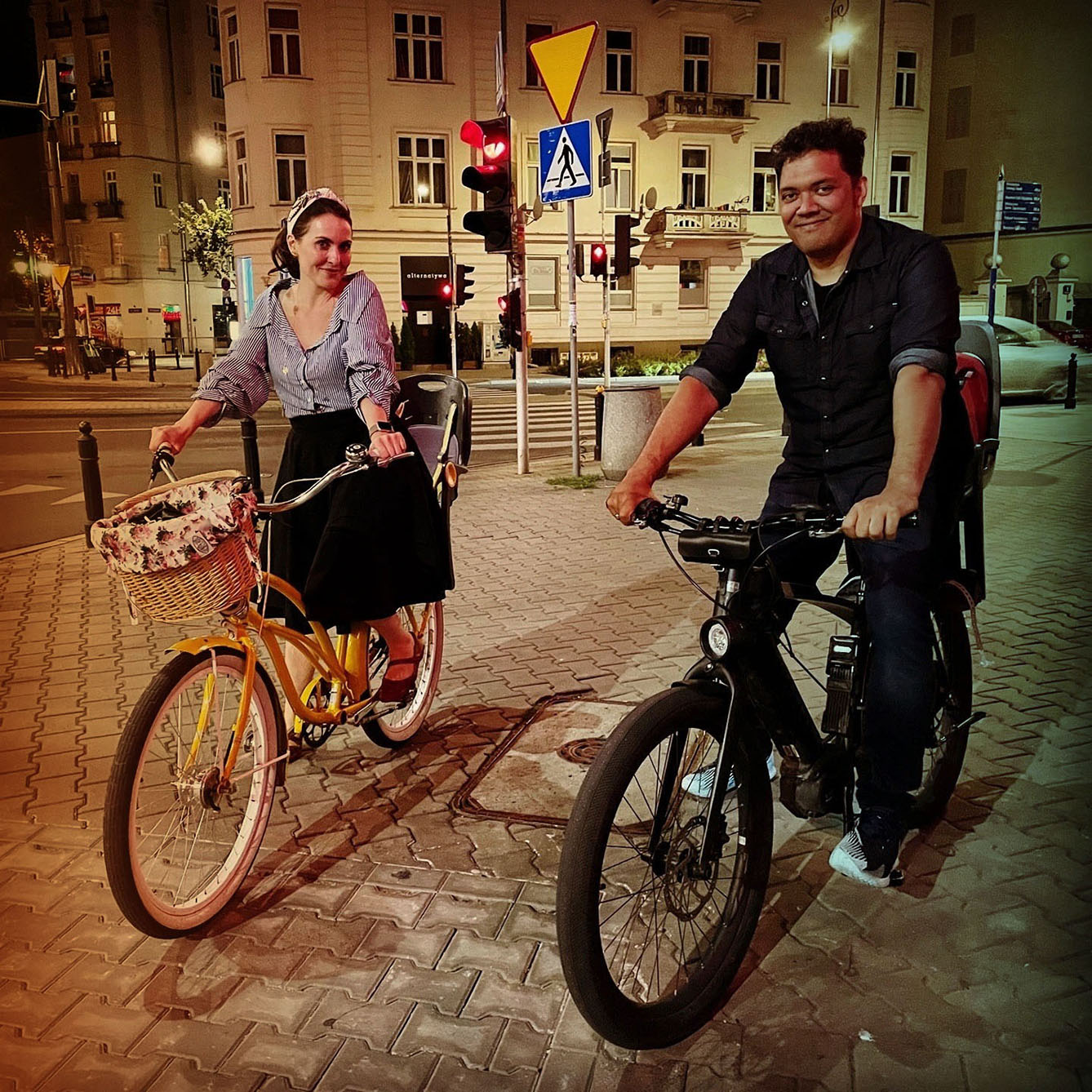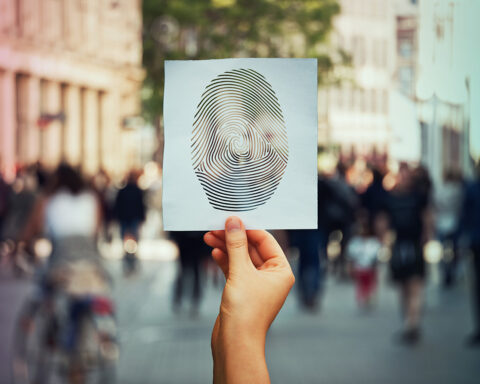Name: Jules Jones
Where are you from? I am from Seattle, WA, USA
How old are you? 39 years old.
Where is your current home? Warsaw, Poland
What is your profession? I am a filmmaker. Screenwriting/Directing.
Why did you move to Poland? For Work. My partner and I moved to Poland because he was asked to direct a screenplay we were writing, Planet Single 2.
Are you in Poland with family or on your own? I came to Poland with my partner and our first child. Our second child was born here in Poland at the beginning of our second year here.
What have you found most surprising about life in Poland?
What surprised me the most about Poland was how kid-friendly it is. Almost any restaurant in Warsaw, whether cafe or white-tablecloth, is likely to have a cute little kids’ area with a small table, chairs, and toys for kids to play with. In the US, sometimes I’d get dirty looks just for entering a restaurant with a child, like everyone knew we were going to ruin their meal. But here, children feel welcomed in these spaces. Art galleries and museums have exhibits geared toward children, every weekend, there are new options for things to do as a family.
There are multiple outdoor plays for children in the summertime, outdoor music performances of all genres, and fairs with “animators” who will help your kids do arts and crafts while you browse the shops. Almost any apartment building of size seems to have a playground in the courtyard. Every neighborhood seems to have some decent option for an indoor play area (these charge admission) where kids can climb and swing and slide, and adults can enjoy food/beverages that are actually tasty. Although the culture here can feel a bit prickly when you’re an adult, Polish people really love children (and dogs), and even the grumpiest looking babcia will gladly smile at and make friendly conversation with a baby or child (or dog).
What are the biggest similarities and differences in living in Poland from your home country?
The fact that stores are closed most Sundays and holidays here took some adjusting. In the US, if I forget to get something I need at the store, I can run out and grab it immediately. In Poland, some holidays keep commerce locked down for three days at a time. Thankfully, I have friends here who will message me to remind me if such a holiday is coming up, so I’m usually prepared when everything shuts down.
Although planning for these breaks can be an inconvenience, and being surprised by one can be a minor disaster, truthfully, I enjoy that consumerism is not an option every day of the week. I’ve realized that “shopping” in the US for me was not merely a goal-oriented task (i.e.: Need shoes. Shop for shoes. Have shoes. Done.) but had become a hobby in and of itself. On Sundays and holidays, I have to dig deeper if I’m out of activity ideas, which turned out to be a lot of fun. We do embroidery, play board games, go to the park, ride our bikes.
I’m sure we’d be doing many of these things with or without no-commerce Sundays, but the fact that shopping is literally not an option means what we have on hand is what we have on hand, and the whole day is just about whatever we’re doing as a family. (Note: Restaurants and cafes are generally still open on Sundays, so it’s not like you’ll starve if you forgot to do your shopping.)
What has the biggest challenge been in adapting to life in Poland?
The bureaucracy here is as complicated as they say. If you’re American, think the DMV but on steroids. Some things can unexpectedly be a breeze here (signing up for Covid vaccinations, for example, was a cinch). Still, many processes, such as applying for a residence card, are not transparent at all, require massive amounts of paperwork, and must be conducted entirely in Polish, with certified translations of any required non-Polish documentation.
Medical records for kids are not fully online, so you need to bring a book with you to every doctor’s appointment where they document your child’s vaccinations. There isn’t necessarily a backup digital copy, so if you lose the book, you’re screwed.
Trying to run a paper-free office here is impossible, and you must never EVER lose your original paper copies of anything; photocopies or scans of documents may not be accepted, so you probably should invest in a filing cabinet. Except that filing cabinets don’t really exist here; most businesses and individuals keep documents on shelves in multiple huge binders, but they don’t hole-punch the paper documents; they keep them in countless plastic sheet protectors. I looked forever for a filing cabinet and finally ordered a cardboard file box from Germany since the binder system just doesn’t work for me. I feel that, for the most part, I’ve been gradually getting used to the situation. Still, as an American, especially one with ADHD, I doubt I’ll ever be fully assimilated in this respect.
What is the biggest benefit to living in Poland?
Besides the delicious food, what I most love about Poland is how great it is for my kids to grow up here. Activities are ample, childcare is affordable, there are many options for high-quality education, and it feels so safe. I live right in the city, and I see young kids running errands for their parents or walking to school independently, and no one bats an eye. I almost never experience or witness sexual harassment here, and we feel safe taking public transportation or walking at night. In this city, my kids are growing up bilingual, well-socialized, and fearless; the benefits of such an environment are immeasurable.
What would you recommend that anyone planning a move to Poland do before they come?
Anyone moving to Poland who wants to stay long-term should start planning for the karta pobytu (residence card) application as soon as possible. Find a reputable immigration lawyer to help with your process, make sure you have all the necessary documentation, and get every page of it officially translated. Do not wait until the last minute.







